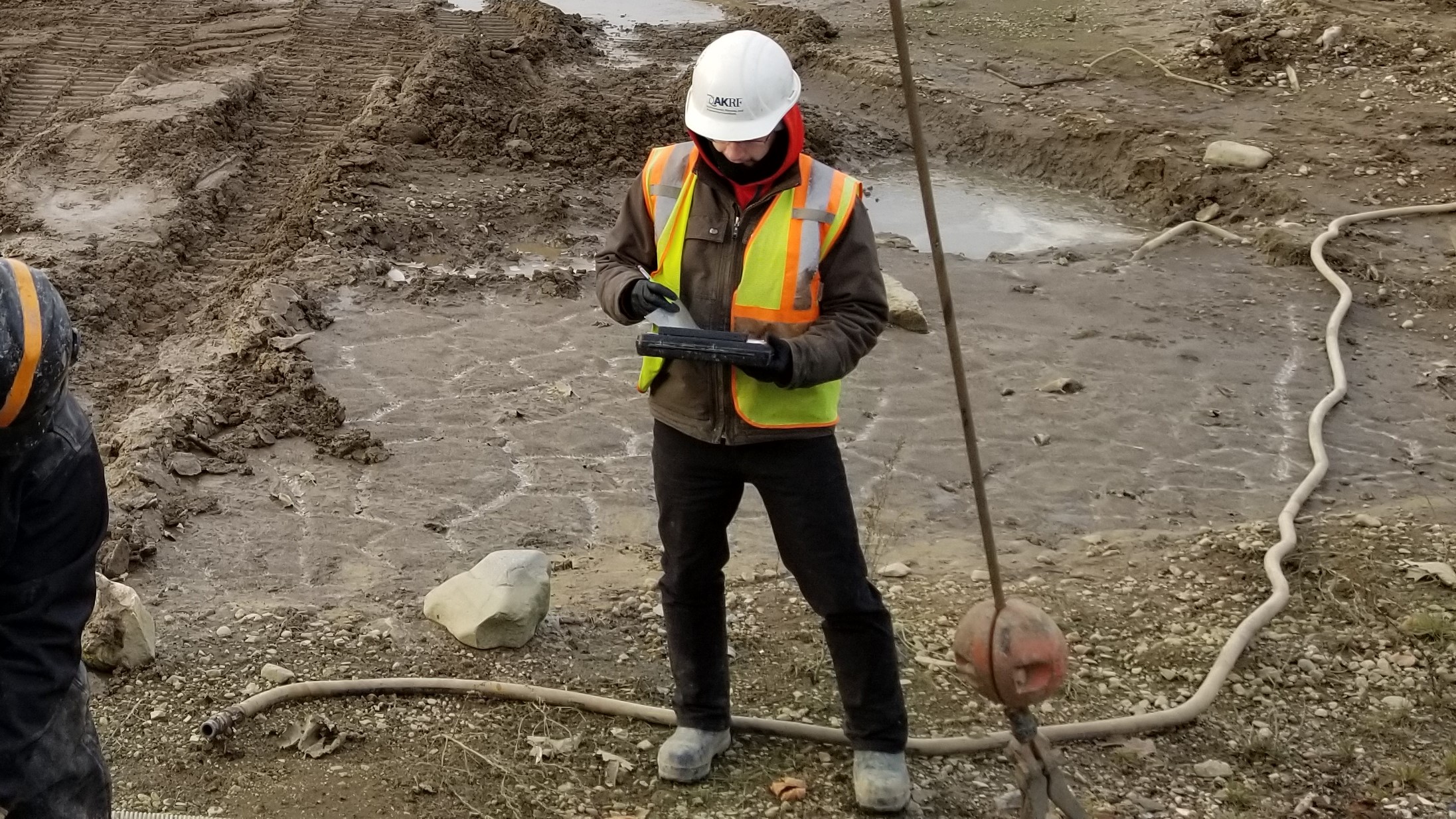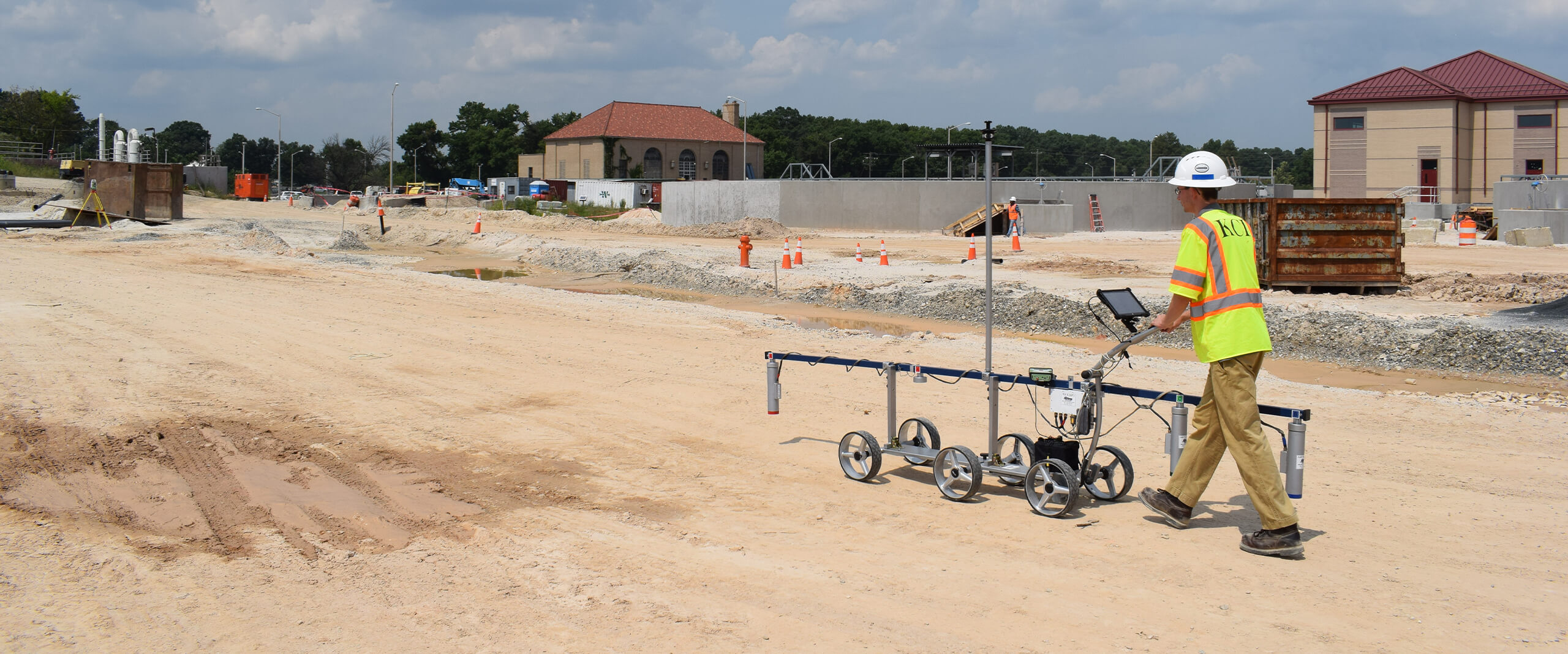Understanding the Comprehensive Role of Geotechnical Engineers in Ground Investigation and Soil Evaluation for Construction Projects
Geotechnical engineers are essential to the success of building jobs, providing essential insights with thorough ground examinations and dirt analysis. Their experience in analyzing dirt behavior and employing innovative screening techniques informs critical choices that promote structural integrity and safety. By identifying possible threats and working together with multidisciplinary teams, these specialists significantly influence job outcomes, consisting of efficiency and cost-effectiveness. Nevertheless, the ins and outs of their function commonly expand beyond these features, prompting a much deeper exploration right into the approaches they use and the ramifications of their searchings for on general job viability.
Role of Geotechnical Designers
The essential function of geotechnical engineers in building tasks can not be overstated, as they give essential insights right into soil actions and site problems. These professionals are entrusted with assessing the suitability of the ground for numerous kinds of frameworks, making sure safety and security and stability throughout the building procedure. Their knowledge encompasses a vast array of activities, consisting of site characterization, soil sampling, and research laboratory testing, which are important for identifying the mechanical and physical buildings of the soil.
Geotechnical engineers utilize their searchings for to create foundational designs that suit load-bearing needs and alleviate risks related to dirt negotiation, liquefaction, and slope security. They play a crucial duty in recognizing prospective risks, such as groundwater variations and contamination, which can significantly influence job feasibility. Moreover, they work together with engineers, civil designers, and service providers to make sure that geotechnical considerations are incorporated into the overall design and building phases.
Ground Investigation Methods
Ground examination techniques develop the backbone of geotechnical design, allowing engineers to gain a thorough understanding of subsurface conditions. These methods are crucial for evaluating dirt homes, establishing groundwater levels, and identifying prospective geological dangers.
Common techniques consist of borehole exploration, which permits the extraction of soil samples at various depths, supplying critical information for evaluation. Additionally, in situ testing techniques, such as Conventional Infiltration Examinations (SPT) and Cone Infiltration Examinations (CPT), are used to review soil strength and density straight in the ground.
Geophysical techniques likewise play a considerable role in ground examinations. Methods such as seismic studies and electrical resistivity tomography help analyze subsurface attributes without substantial excavation. geotechnical industry. These non-invasive methods are specifically helpful in sensitive or huge areas where disturbance need to be reduced
Furthermore, exploratory trenches can be dug deep into to visually inspect dirt layers and identify any kind of anomalies. Each of these strategies contributes unique insights, permitting geotechnical engineers to create exact website analyses and notify design choices. In summary, a mix of these ground examination techniques is crucial for effective building jobs, ensuring safety and structural honesty.
Dirt Evaluation Methods
Soil analysis techniques are crucial for comprehending the chemical and physical buildings of dirt, which directly influence the design and construction of foundations and other frameworks. Numerous strategies are used to analyze dirt characteristics, guaranteeing that geotechnical designers get accurate data for notified decision-making.
One frequently made use of method is grain size analysis, which figures out the distribution of bit dimensions within a dirt sample. This is essential for categorizing soil types and forecasting their habits under load. Another essential technique is Atterberg restrictions screening, which examines the plasticity and wetness content of fine-grained soils, giving understandings into their engineering homes.

Area tests, such as Typical Infiltration Tests (SPT) and Cone Penetration Tests (CPT), deal valuable in-situ data concerning soil stamina and stratification. Jointly, these soil analysis techniques develop the structure of geotechnical investigation, allowing engineers to design effective and risk-free frameworks tailored to the particular conditions of the you could try these out website.
Threat Mitigation Techniques
Carrying out efficient threat reduction approaches is essential for geotechnical engineers to resolve possible obstacles in building and construction tasks. These approaches are essential in recognizing, analyzing, and handling dangers related to dirt conditions, site security, and groundwater variations, which can negatively impact project outcomes.
One key technique involves conducting thorough website investigations that utilize advanced geophysical techniques and detailed dirt sampling. By acquiring exact data on subsurface problems, engineers can make enlightened decisions on style and construction techniques. In addition, employing predictive modeling tools enables the simulation of numerous scenarios, enabling engineers to anticipate possible troubles and implement safety nets.
Additionally, establishing clear interaction networks amongst task stakeholders fosters a joint approach to run the risk of management. Regular updates and examinations ensure that all celebrations know the evolving website problems and can adjust their strategies accordingly.

Influence On Construction Projects
The effectiveness of risk reduction strategies directly influences the general success of building jobs. Geotechnical engineers play an essential function in this domain, as their proficiency in ground investigation and soil analysis educates crucial choices throughout the building and construction procedure. By properly assessing dirt conditions and identifying prospective risks, these experts make it possible for job groups to devise reliable remedies that lower risks connected with ground instability, water seepage, and various other geotechnical difficulties.
The impact of thorough geotechnical evaluation is obvious in various facets of building projects, consisting of expense management, task timelines, and link structural honesty. Early identification of concerns enables for timely treatments, lessening costly hold-ups and budget overruns. In addition, an extensive understanding of website conditions improves the design and design process, making certain that structures are constructed to stand up to ecological pressures and possible natural calamities.
Inevitably, the contributions of geotechnical designers are integral to the successful execution of construction projects. Their job not only fosters safety and compliance with guidelines however also enhances the long-term sustainability of structures, making sure that they do properly throughout their desired life-span. The cooperation in between geotechnical groups and various other stakeholders is necessary for attaining optimum end results in building and construction undertakings.
Verdict
To conclude, geotechnical designers do a vital feature in building jobs with detailed ground examinations and soil analyses. Their know-how in assessing dirt actions, employing various examination strategies, and applying danger reduction techniques considerably contributes to the architectural honesty and safety of constructed settings. By teaming up with multidisciplinary groups, these experts improve project efficiency and make certain conformity with safety and security criteria, eventually bring about successful building results and lowered possible threats.
Geotechnical designers are important to the success of building projects, providing crucial understandings through thorough ground examinations and soil evaluation.The critical role of geotechnical designers in construction jobs can not be overstated, as they supply essential understandings into dirt behavior and site conditions. Their proficiency includes a vast range of activities, consisting of original site site characterization, soil tasting, and research laboratory testing, which are vital for determining the mechanical and physical residential properties of the dirt.
By accurately evaluating dirt problems and identifying prospective threats, these professionals allow job groups to develop efficient solutions that decrease threats associated with ground instability, water infiltration, and other geotechnical obstacles.
In conclusion, geotechnical engineers carry out a crucial function in construction projects with extensive ground investigations and dirt evaluations.